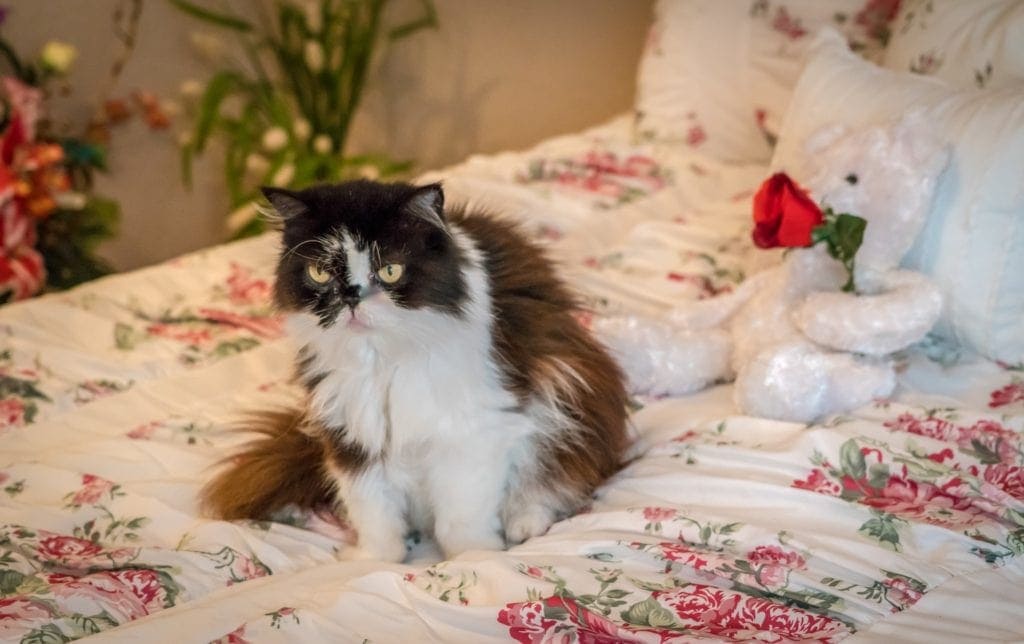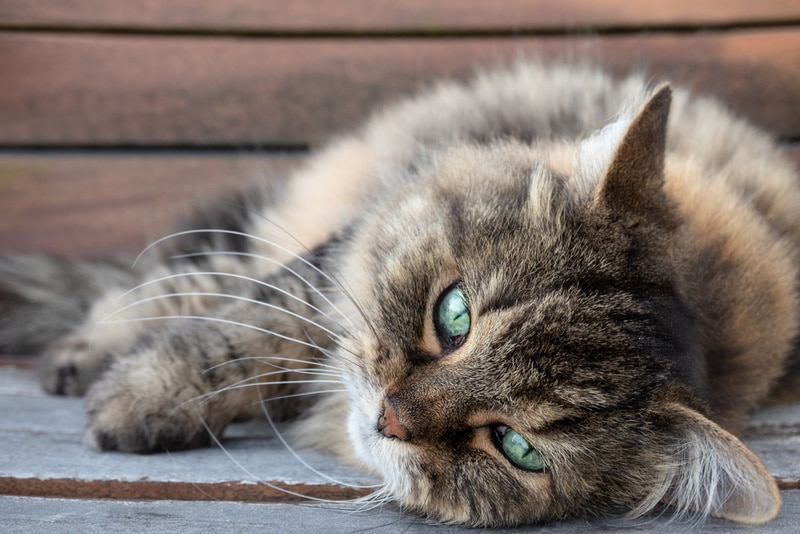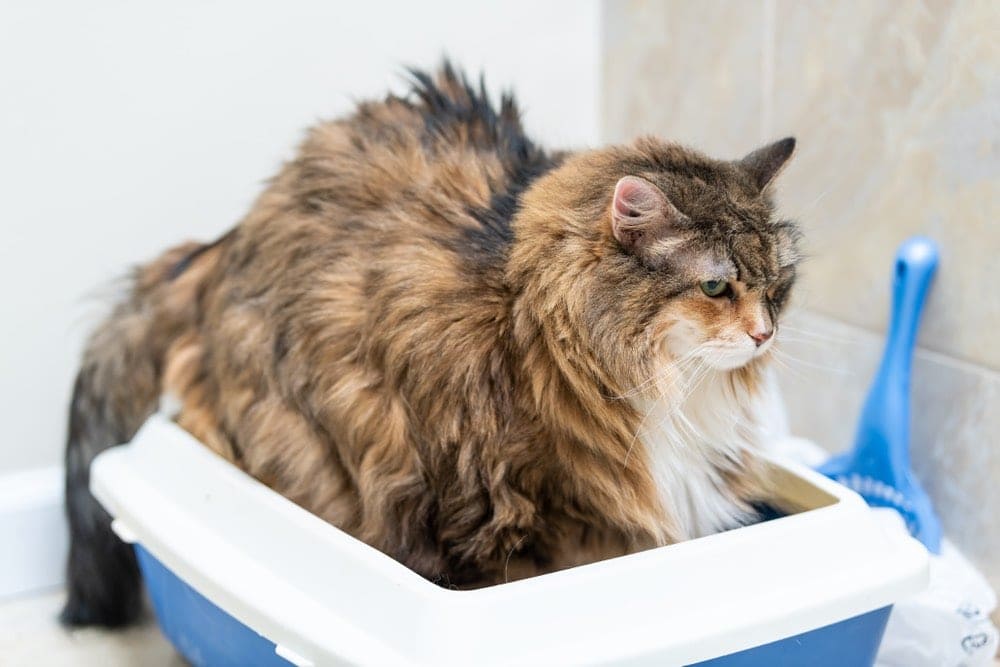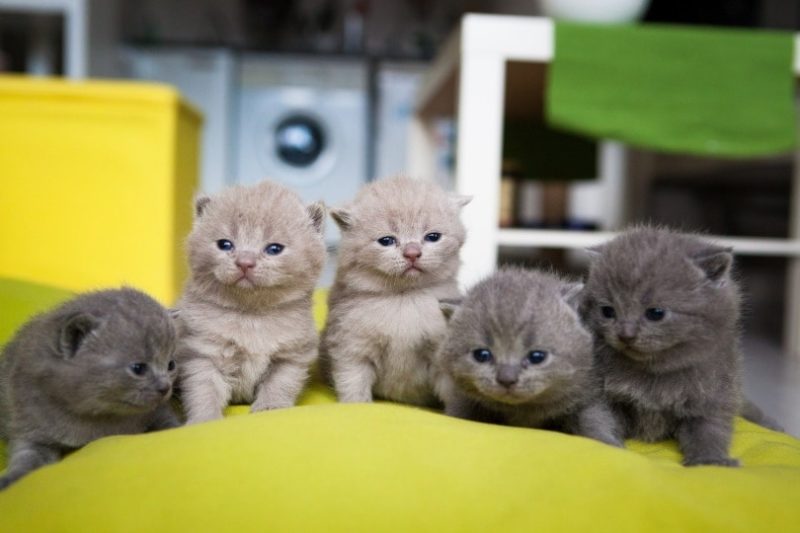When Is a Cat Considered a Senior? Vet-Approved Explanation
By Kit Copson
Updated on

If your cat is advancing in years, you may be wondering at what point they can actually be classified as a senior cat. To answer this, the American Association of Feline Practitioners (AAFP) classifies cats as mature when they are 7 to 10 years old and considers cats to be seniors when they are 11 to 14 years old.1
If you’ve been noticing that your 11–14-year-old cat has been looking a little grey lately, don’t be disheartened—they may still have a whole other life stage ahead of them! The AAFP mentions a third classification—geriatric. Geriatric cats are aged between 15 and 25 years.
Though it’s possible for cats to live healthily into their twenties and even beyond in some cases, there are still some changes that you might notice in your senior or geriatric cat. Let’s explore this further.
The 5 Possible Changes in a Senior Cat
Many cats go through their senior years in excellent health, and some never lose their chirpy or playful streaks. That said, there are still certain changes you might want to keep an eye on.
According to Dr. Ken Lambrecht, DVM, vigilance on the part of the owner plays a huge part in making sure senior cats remain healthy and happy, along with regular vet exams and general wellness checkups.2 Dr. Lambrecht recommends taking cats over the age of 7 for a vet checkup every 6 months.
Try not to worry too much—it’s normal for older cats to go through changes and not all of them are the result of a sinister health condition, but it’s still important to get changes checked out just to be on the safe side and to ensure your cat gets treatment if necessary. Here are some of the possible changes your senior cat may experience.
1. A General Slowing Down
It’s not uncommon for senior cats to be less playful than they once were. They may be less inclined to hunt and explore and spend more time snoozing than they would have done in their younger years. This doesn’t mean they no longer need daily physical and mental stimulation, however.
Though slowing down as a result of age isn’t all that surprising, it’s still a good idea to get your senior cat checked out by a vet if you notice that they’re less active than before just to rule out any health conditions like arthritis or diabetes.

2. Mobility Issues
If you notice your older cat struggling to get up on furniture, up the stairs, or having any issues with movement in general, check this out with your vet. In the meantime, you can help your less mobile older cat by providing litter boxes they can easily get into and ramps so they can still reach their favorite spots like the couch or bed.
3. Bathroom Habits
It’s possible that your senior cat will start to experience changes in toilet habits and frequency. For example, you might spot them heading to the litter box more regularly or going to the bathroom outside the litter box. This can be a sign of conditions like urinary tract infections, kidney disease, or feline dementia, so it’s best to get it checked out by a vet.

4. Weight Changes
Some senior cats put on weight as a result of being less active, whereas others slim down. Both of these situations should be investigated in case they’re down to a health condition like dental disease, which could prevent a cat from eating properly, or arthritis, which may cause cats to be less active. Certain types of cancer can also cause weight changes.
5. Behavioral Changes
Cognitive dysfunction—also known as feline dementia—is a condition that can cause several behavioral changes in older cats, like excessive vocalizing, disorientation, confusion, anxiety, irritability, sleep changes, incontinence, appetite loss, clinginess, and reduced self-grooming to name but a few. If you notice any unusual behaviors like those listed above, you guessed it—it’s time to reach out to a vet.
Final Thoughts
In general, 11–14-year-old cats are classed as seniors. You can help support your older cat at home by making things, like litter boxes, bowls, and furniture more accessible to them, giving them plenty of love and attention as usual, and simply keeping an eye on them for any physical or behavioral changes.
Finally, though we know taking your cat to the vet can be a difficult feat—especially if, like one of our cats, they strongly and loudly protest against having to get into a cat carrier—regular vet checkups are also a must for older cats and can increase their chances of remaining healthy into old age.
See Also:
- 10 DIY Cat Ramp Plans You Can Make Today (With Pictures)
- Do Cats Go Grey as They Get Older? Our Vet Explains
Featured Image Credit: Michelle_Maria, Pixabay












